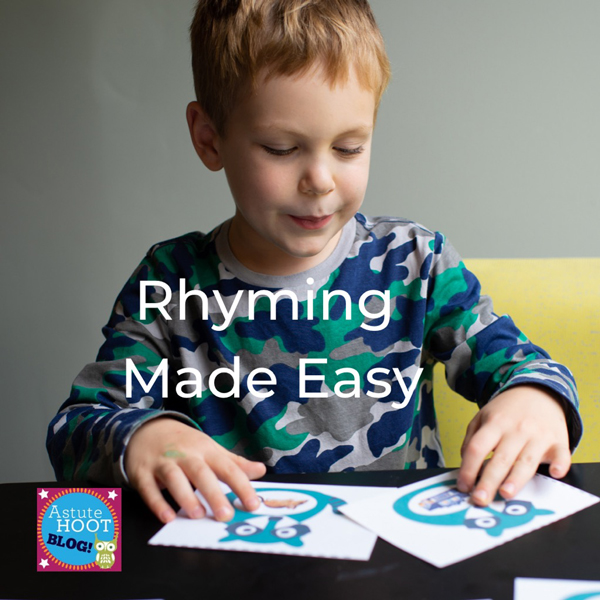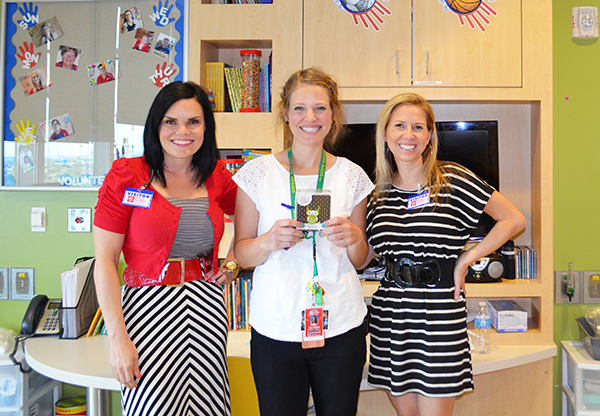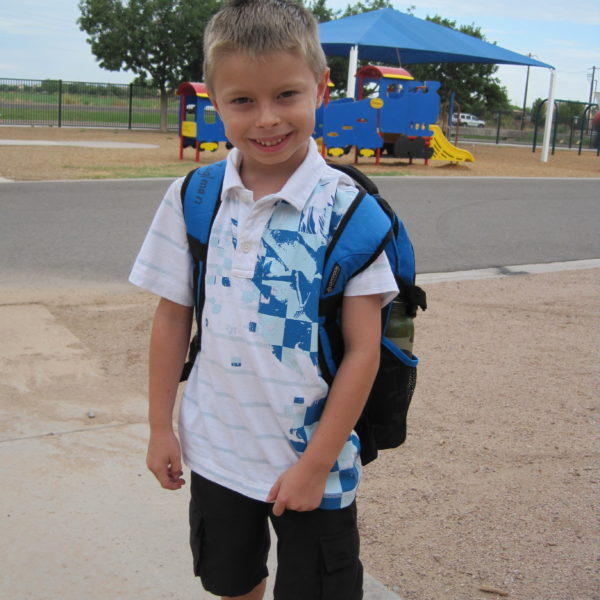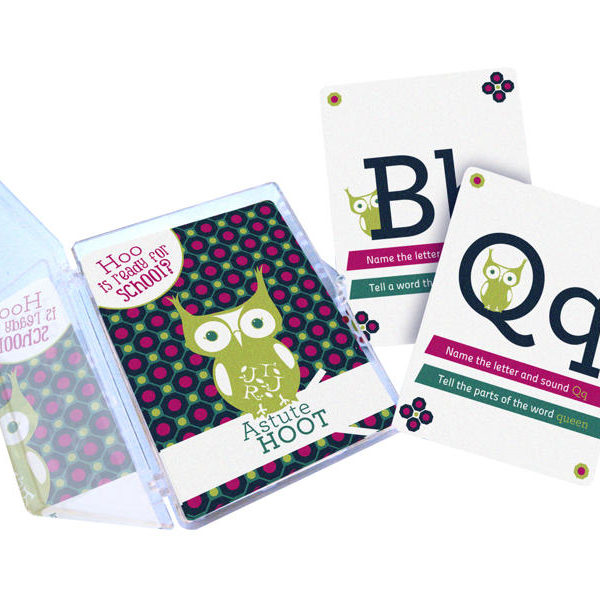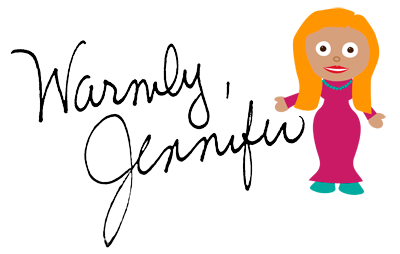“There is a real magic in enthusiasm. It spells the difference between mediocrity and accomplishment.”
–Harry S Truman
After being approached to teach the Spalding Method, I felt trepidation. While very impressed with the program’s research and philosophy, I was worried that my second-grade students would quickly become disengaged with the program’s repetition. I knew that I would need to spark enthusiasm and engagement or my instruction would be mediocre at best. Here are my “magic” tips for creating a successful, engaging phonics instruction block:
- Create a consistent schedule. Right after announcements and calendar, we complete oral and written phonogram review, followed by spelling dictation. I selected this time because students are focused in the morning and it allows tardy students to make it to class without missing valuable instruction. Plus, it is a protected instructional time (i.e., no assemblies planned during this time). Since the schedule is consistent and predictable, students know what to expect and they become comfortable and secure with the consistency.
- Develop an instructional routine. Our Spalding phonics block involves 4 components: oral phonogram review, written phonogram review, guided spelling practice (see below) and spelling dictation (into spelling notebooks). Establishing these procedures and practicing daily reinforces learned skills and promotes mastery. This repetition is critical for all learners, especially those with learning disabilities. Plus all students thrive on a consistent routine.
- Design practice forms and make copies for the year. Each phonics program requires some type of pencil/paper practice. Design (or modify) these forms and copy them for the entire year. This saves hours of planning and prep time; using the same form is also beneficial for students.
- Give phonics instruction a special name. Phonics instruction is a valuable time, why not give it a specific meaningful name? Word Wizards is the name of our phonics block; I selected this name because students have a book of “spells” (a spelling notebook) and they learn specific rules to help them become spelling wizards. It’s much more relevant and engaging than using the name of the program.
- Use props. A wizard wears a pointy hat and carries a magical wand so it’s only appropriate to include these during instruction. I purchased both props at Party City and glued foam phonograms on both. I wear the hat during instruction time (I find it keeps kids focused on me) and I use the wand as a pointer to point to specific words, phonograms or rules.
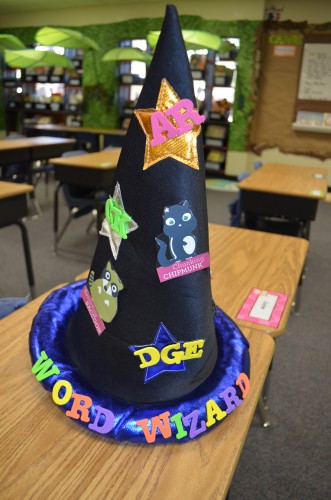 6. Include active engagement. Every student loves white board practice, so why not customize for phonics instruction? Our class uses Sally Sounding Out Snake to help segment and blend one syllable words and Charlie Chunking Chipmunk to break apart multi-syllabic words. Create these double-sided boards and laminate them for daily practice. Read each animal’s accompanying poem to teach/review strategy and then use as a guided practice tool, just like a white board.
6. Include active engagement. Every student loves white board practice, so why not customize for phonics instruction? Our class uses Sally Sounding Out Snake to help segment and blend one syllable words and Charlie Chunking Chipmunk to break apart multi-syllabic words. Create these double-sided boards and laminate them for daily practice. Read each animal’s accompanying poem to teach/review strategy and then use as a guided practice tool, just like a white board.
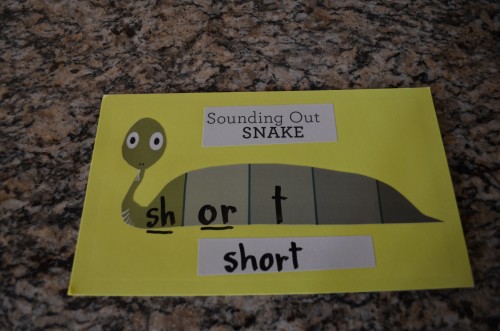 7. Provide positive reinforcement. Be sure to provide plenty of praise and call students up to share their work. I select one Word Wizard each day; this is a student who demonstrated “magical” active participation, listening skills, attention to handwriting focus or other desired behaviors. The Word Wizard is selected at the end of the phonics block and given a special Word Wizard award. I reiterate reason(s) why the student was selected and show his/her work when appropriate. While it might seem like simple reward to us, students view it as a major accomplishment and cherish these colorful awards
7. Provide positive reinforcement. Be sure to provide plenty of praise and call students up to share their work. I select one Word Wizard each day; this is a student who demonstrated “magical” active participation, listening skills, attention to handwriting focus or other desired behaviors. The Word Wizard is selected at the end of the phonics block and given a special Word Wizard award. I reiterate reason(s) why the student was selected and show his/her work when appropriate. While it might seem like simple reward to us, students view it as a major accomplishment and cherish these colorful awards
8.Have fun! No matter how you plan your phonics instruction, be sure to have fun! Students need consistent daily instruction with opportunities for kinesthetic practice. Include these tips and you will soon see the magic!
Check out our Word Wizards Spalding & Phonics Support Kit at www.teacherspayteachers.com.

